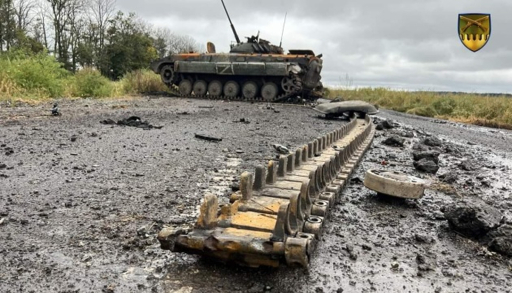The Russian commander of the “Vostok” Battalion fighting in southern Ukraine said on Thursday that Ukraine will not be defeated and suggested that Russia freeze the war along current frontlines.
Alexander Khodakovsky made the candid concession yesterday on his Telegram channel after Russian forces, including his own troops, were devastatingly defeated by Ukrainian marines earlier this week at Urozhaine in the Zaporizhzhia-Donetsk regional border area.
“Can we bring down Ukraine militarily? Now and in the near future, no,” Khodakovsky, a former official of the so-called Donetsk People’s Republic, said yesterday.
“When I talk to myself about our destiny in this war, I mean that we will not crawl forward, like the [Ukrainians], turning everything into [destroyed] Bakhmuts in our path. And, I do not foresee the easy occupation of cities,” he said.



That’s not even close to a military analysis. What about artillery attrition? Logistics in the rear? What’s the average time between Russians setting up an ammo depot and it getting blown to bits? Conscription getting riskier and riskier for Putin?
How many reserves have the sides committed to the front? Hint: Russia committed everything quite some time ago while Ukraine didn’t and is rotating troops so they can get some well-deserved R&R.
Putin does, certainly when it comes to regime stability. Russia? I very much doubt it because there’s also sane Russian. Europe will continue support indefinitely don’t confuse us for fickle yanks and you’re severely underestimating the morale boost incurred by fighting a defensive war. For Ukraine, this indeed is an existential war. Read Clausewitz.
No. Much of Russia’s production and stocks are in the east. Also that’s like such a non-issue.
…at a state where Russia, Russia, is importing metals from China. Metals. Russia. Do I need to need to use more italics. I don’t have any insight on the details but it’s well-known that Russia is lacking workers because tons are either a) dead, b) on the front, or c) in hiding to not end up a) or b), and that seems to be so bad that it affects mining and refining.
Now China might be happy propping Russia up, but internally the Z-patriots are going to scream bloody murder incurring debts with China. Long story short: Russia’s internal situation is becoming more and more volatile.
Do you think you know the answer to any of these questions? I don’t see any sources. The bottom line is that Russia has shown the ability to hold its territory for quite some time.
Lol let’s see if Europe’s support will last another winter of higher energy prices. The U.S. is the big spender, anyway.
This paragraph is so mind-meltingly stupid I hardly know where to start.